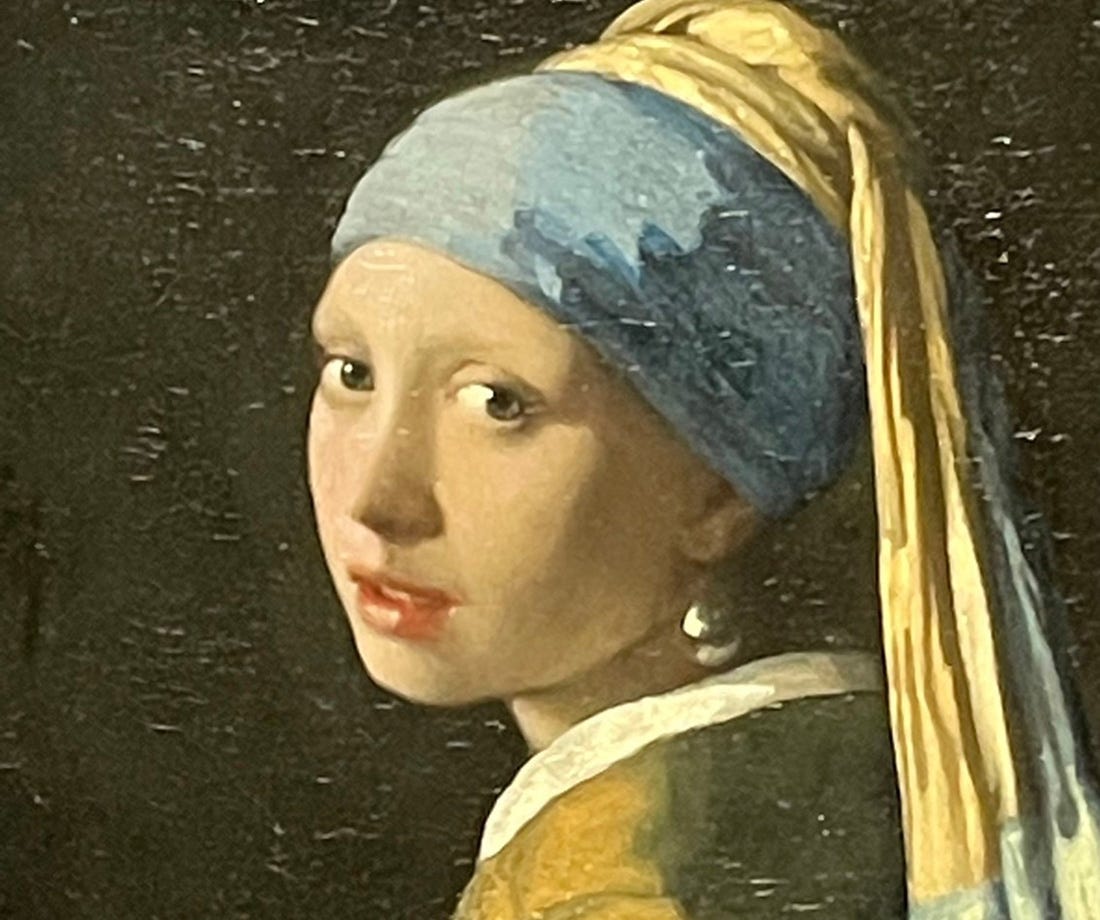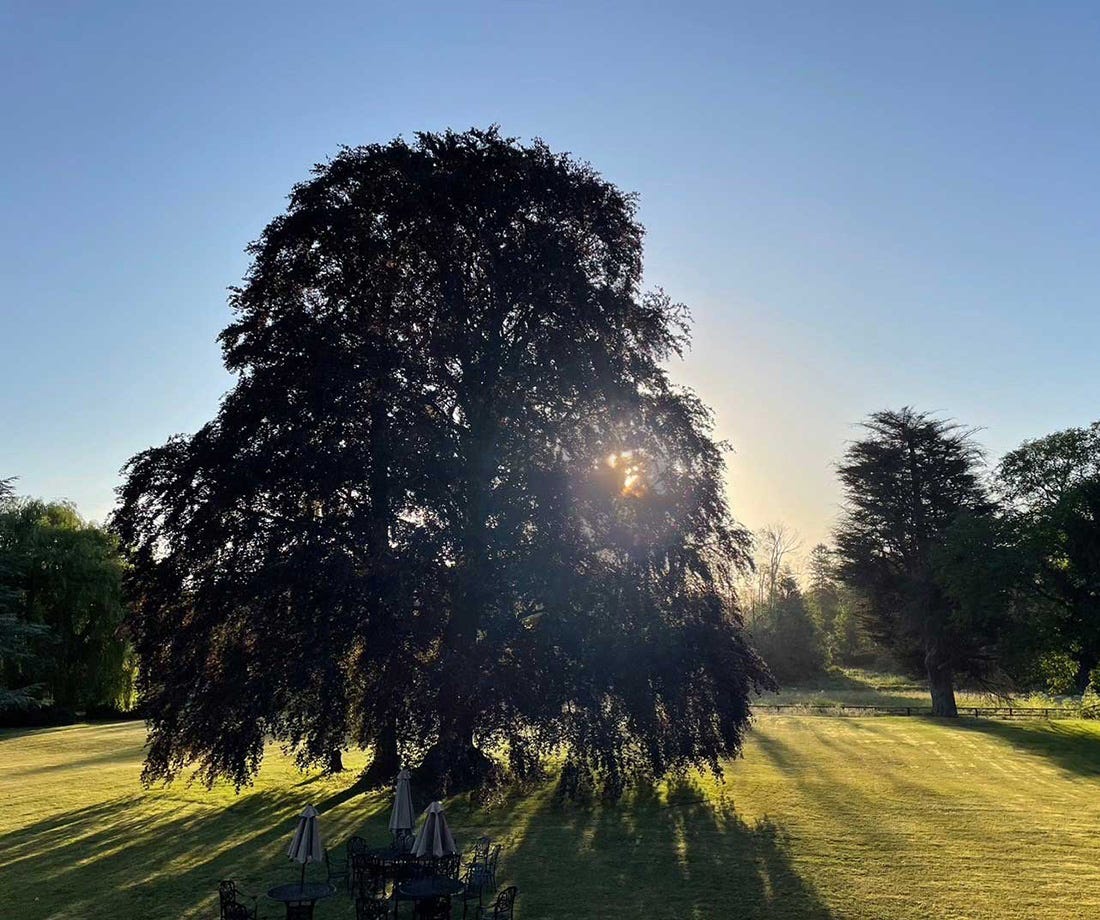
Introducing our new article series with writer Maha Harada. Dive deeper into the world of pearls through her essays and stories exclusive to Mikimoto.
Vol.4
Morning dew in the courtyard
Part 2
Read Part 1The strong wind and rain that continued all night had completely stopped by the time it was time to leave the hotel. There was a clear blue sky across the Kyoto Imperial Palace.
Makoto joined me in Kyoto. It’s been quite a while since the two of us were last here in Kyoto, so we took this chance to stroll inside the Imperial Park close to the hotel.
Entering the palace complex through the Hamaguri Gomon Gate on Karasuma Street, we walked up the path on the west side. Mother and daughter, walking shoulder to shoulder under the fresh shade of leafy cherry trees and blue maple, gave me an indescribable feeling of contentment.“It’s so nice here. We’re lucky the weather cleared up,” Makoto said as she looked up at the sky, shading her eyes with her hand as slim as a young sweetfish. Thanks to the sunlight filtered through the leaves, the pearl on her ring finger is shimmering softly. I took a liking to my daughter’s fiancé for giving her a pearl engagement ring that exudes purity.
“Was it ok for you to come here? You took the day off work, didn’t you?” I asked.
Makoto didn’t object to me going ahead with the sale of my parents’ house but admitted she would miss seeing the old house she always visited as a child. I want to take one final look before it falls into someone else’s hands, she said and rushed over.
“Yeah, it’s ok. This is important,” Makoto answered. Her voice sounded honest.
Around the time when she was in second grade at elementary school, our whole family visited the Imperial Park to watch the Aoi Festival. Her friend Saya, who lived next door to my parents’ house, joined the procession as one of the young girls accompanying the festival queen, Saio-dai, and carried the hem of her twelve-layered kimono.
I was so jealous of Saya, wearing a dazzling kimono and all glammed up with white powder and lipstick, Makoto reminisced.
“Grandma, Grandpa, and Dad were all with us back then,” she remarked pensively.
A vision of the Saio-dai queen and assisting young girls appeared for a split second at the top of our path, then vanished.
I opened both the lattice window on the front street and the glass window facing the courtyard garden, creating a passage for fresh air.
“Ah, what a nice breeze,” Makoto said, taking a deep breath. “It’s still the same. The scent of Grandma’s home.”
I smiled. Perhaps we could call it the scent of history nurtured over a long time. This house has an atmosphere that reminds me of an exhibition room at a folk crafts museum.
Makoto glanced around inside the house. “Wow. It’s incredibly empty,” she exclaimed.
“I know right?” I responded. “I think Grandma was regularly decluttering her belongings before she ended up in the hospital. I got a recycling company to come and collect bulky pieces of furniture after she passed away, but there were hardly any small personal items for me to tidy up. It’s really completely empty...”
It’s completely empty, as though she was never here, I almost said. My mother is gone for good. Like a water bubble popping, I felt a pang of grief deep in my heart.
The plants in the courtyard are sparkling with dew drops on their leaves from the early morning rain. Makoto sat down on the porch, resting her feet on the wet stepping stone. The sight of her bare feet, pedicured in cherry blossom pink and lined up in the sun, brought back the memories of when she was little, wearing white socks and dangling her feet in the exact same spot.
“I wonder what Grandma forgot to take,” Makoto mumbled unexpectedly.
Huh? I came to my senses and asked, “She forgot to take something?”
Makoto nodded. “I suddenly remembered that Grandma mentioned it the last time I visited her. She said she had left something at home, so she wanted me to go and get it...”
Mistaking her granddaughter for me, my mother apparently held Makoto’s hands and pleaded, Maya, I’ve left somethin’ importan’ behind — would you mind goin’ to fetch it for me?
“Hey Mom, have you checked everywhere? Like inside the chest of drawers and inside the closet.”
I laughed and answered, “Of course. I didn’t find anything. It’s completely empty.”
“Okay. I guess you’re right. It’s completely empty,” Makoto also chuckled and stood up.
Then, looking straight down into the washbasin next to the stepping stone, “Wah,” she uttered quietly.
Her gaze is still fixed on it. I also peered over the washbasin from the porch.
It’s fresh in my memory. When I looked at it yesterday, an old autumn leaf was sitting silently at the bottom of the dried-up water bowl. Last night’s wind and rain must have blown it away. The old leaf was no longer there. In its place though, there was something small, glinting. Makoto’s fingertips gently picked it up.
Wah...! I also exclaimed in surprise. It was a pearl ring.
I remember it. It’s the ring that my mother used to wear on her ring finger. The ring that disappeared after a certain point in time I can’t recall exactly... Oh, I know. After my father passed away, it was quietly hidden away... Into the bottom of this water bowl! That’s where it was all this time...
Without saying anything, Makoto placed my mother’s ring on my palm. Her eyes were filled with tears that looked like morning dew.
I gently wrapped the pearl in the palm of my hand. Soft and warm, I felt the warmth of my mother.
To be continued
Coming soon
Maha HARADA
b. 1962 Tokyo, Japan
Based between Tokyo, Paris, Kyoto, and Nagano, Maha Harada is a creative visionary and exceptional storyteller who has produced world-class, category-defying writing.
Harada is one of the founding curators of Tokyo’s acclaimed Mori Art Museum; when it was established, she was sent to represent the Museum as a project researcher at its principal cultural partner, The Museum of Modern Art, New York. It is for this reason that Maha Harada is renowned as Japan’s leading creator of art novels and art entertainment.
She is among Japan’s most talked-about writers and creatives, and her extraordinary experiences give her an unparalleled ability to blend art and literature. Harada’s art novels journey into the past to breathe fresh life into some of the world’s most beloved artists, who still enchant countless people today. These stories transcend time and generation crossing the boundaries of nation and region. At the same time, they are rooted in the experiences of a woman born and raised in Japan.



 Back
Back 




 Back to "Everything in harmony"
Back to "Everything in harmony"